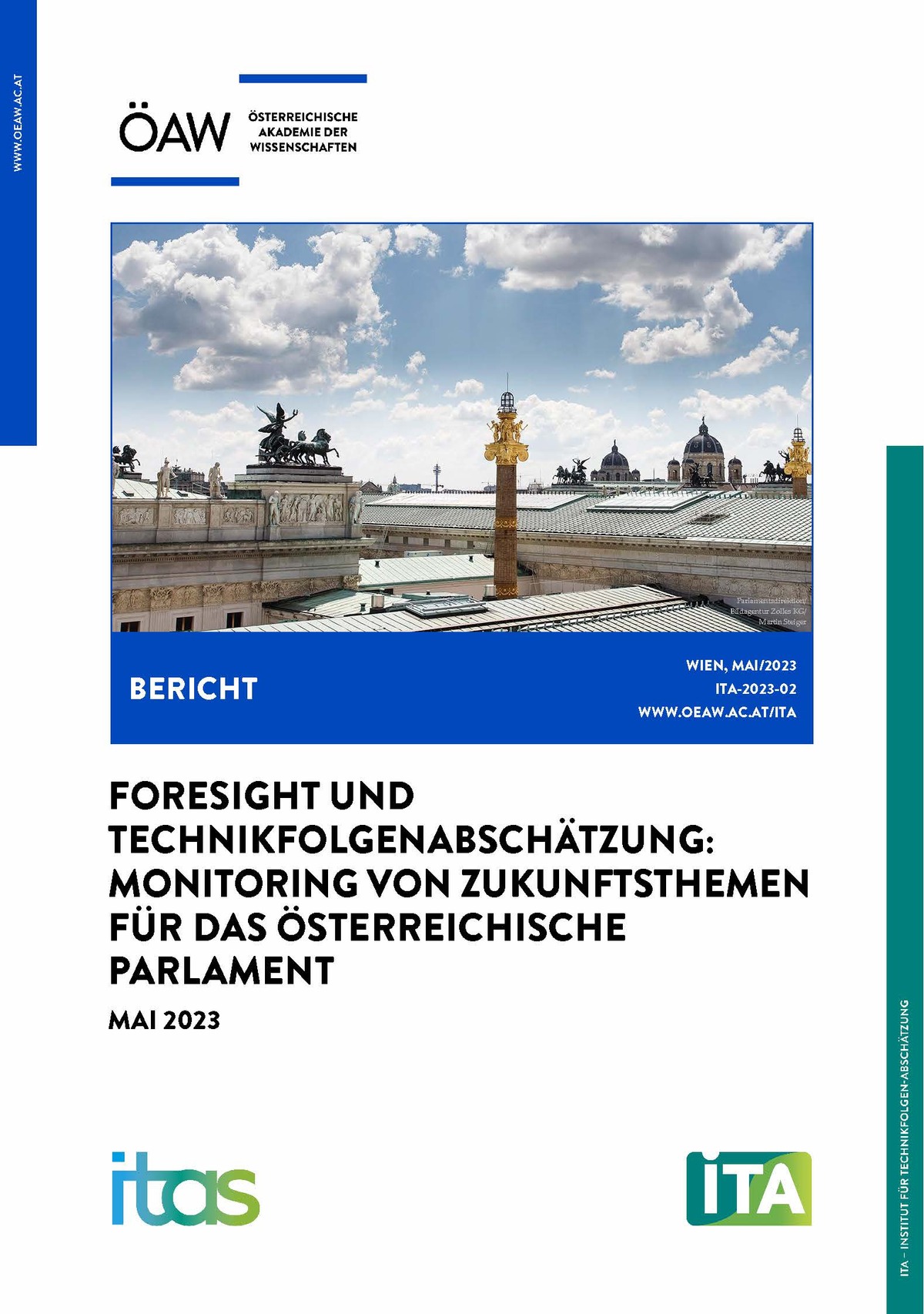Monitoring for the Austrian Parliament
The first “Monitoring von Zukunftsthemen” (monitoring of future topics) by ITA and ITAS identifies and analyzes six fields of application of technologies likely to have major impacts on society. These socio-technical trends promise great innovation potential, but also come with a need for parliamentary action.
“Anti-obesity drugs” and “artificial womb systems”
The ITAS researchers focused on two main topics for the report: On the one hand, they analyzed recent, sometimes groundbreaking, advances in techniques for developing embryos or fetuses outside the (human) body and for creating embryos without eggs or sperm. These already raise profound ethical and legal questions today. On the other hand, they dealt with new drugs for the treatment of obesity, which could affect around four billion people worldwide by 2035. Here, according to the report, not only questions arise about the long-term safety and efficacy of the drugs, but social and ethical challenges also emerge.
Other topics covered in the report include large-scale heat pumps for use on an industrial scale, the environmental impact of space travel, the development of drought resilience strategies, and the implications of using generative AI systems in democratic societies.
Evaluation using artificial intelligence
In order to identify the potential future topics, the researchers for the first time also used AI-supported quantitative evaluation methods – in addition to qualitative evaluation of sources. The publicly accessible monitoring reports for the Austrian parliament will now be published twice a year. Based on the results, members of parliament can select individual topics for in-depth studies as needed. (12.06.2023)
Further information:
- Foresight und Technikfolgenabschätzung: Monitoring von Zukunftsthemen für das österreichische Parlament (full text as PDF)
- Website of the Austrian parliament on foresight and technology assessment (only in German)
- ITAS news on the start of advisory work for the Austrian parliament


